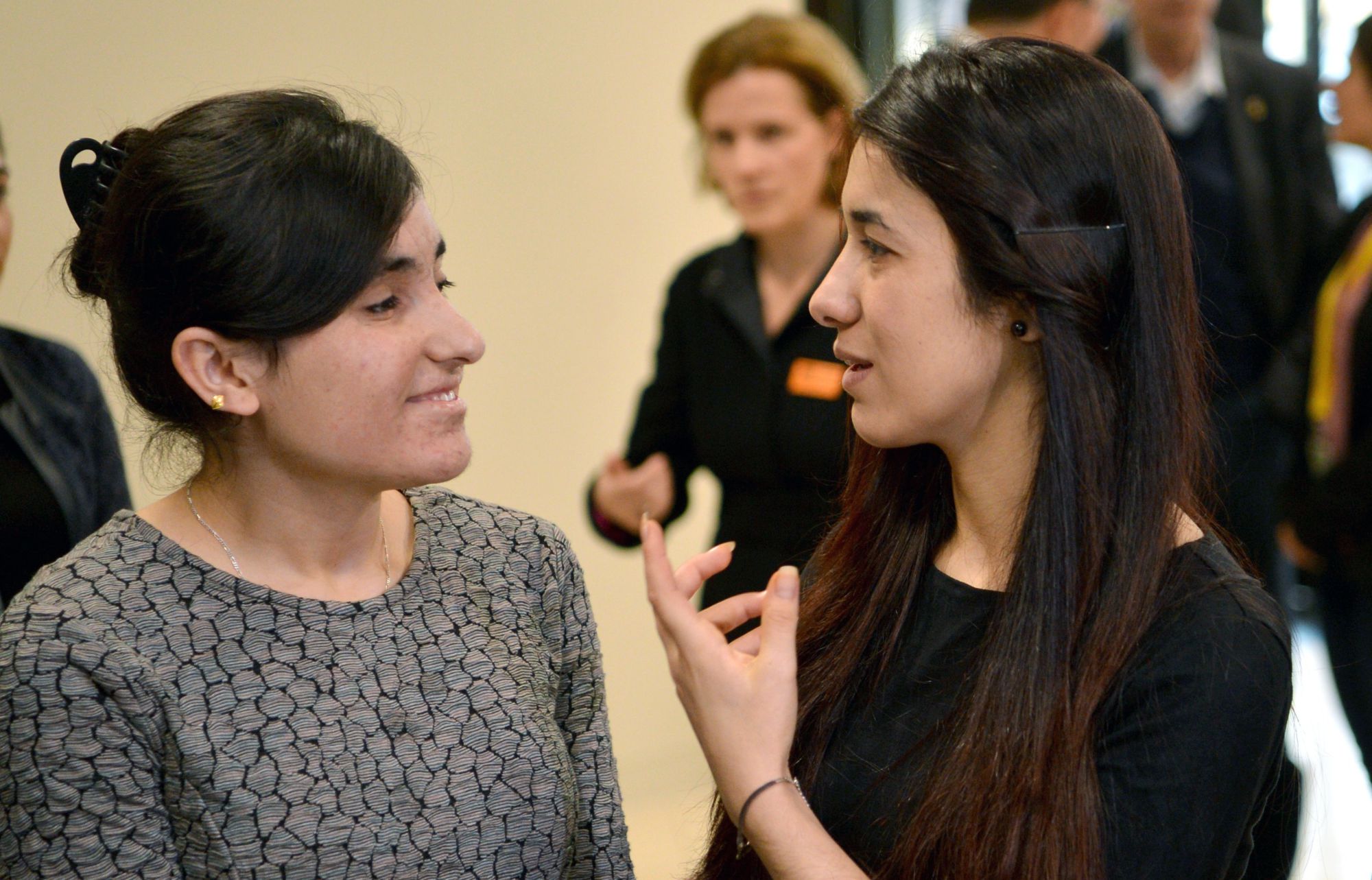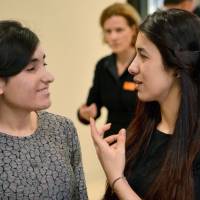A Yazidi woman imprisoned and raped by Islamic State fighters said she had no idea about the scourge of human trafficking until she found herself enslaved with thousands of other women.
Nadia Murad Basee Taha has become the face of Yazidi women captured in northwestern Iraq in the summer of 2014 and used as sex slaves by the Islamic militants.
Since escaping her captors in November 2014, she has become an advocate for the Yazidis, and for refugee and women's rights in general, as well as a campaigner against human trafficking.
"Before 2014 we didn't know there was something called human trafficking," Murad said on Thursday, speaking at Trust Women, an annual women's rights and trafficking conference hosted by the Thomson Reuters Foundation.
Murad, who is also a United Nations Goodwill Ambassador, said she was told she was a "slave captive" after Islamic State fighters rounded up Yazidis in the village of Kocho, near Sinjar in northwest Iraq.
The Yazidi are a religious sect whose beliefs combine elements of several ancient Middle Eastern religions. Islamic State considers them devil-worshippers.
Murad, 23, was held by Islamic State in Mosul but escaped after several months, reaching a refugee camp and eventually making her way to Germany.
She has since traveled to Egypt, Greece, Kuwait, Norway, the United States and Britain to raise awareness about the plight of the Yazidis, urging the international community to do more to bring the jihadi militants to justice.
"The world needs a lot of work to move forward," she said. "There are millions of people waiting for freedom."
Nearly 46 million people globally live as slaves, forced to work, sold for sex, trapped in debt bondage or born into servitude, according to the 2016 Global Slavery Index by rights group Walk Free Foundation.




















With your current subscription plan you can comment on stories. However, before writing your first comment, please create a display name in the Profile section of your subscriber account page.